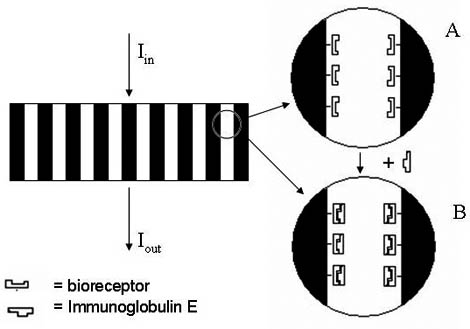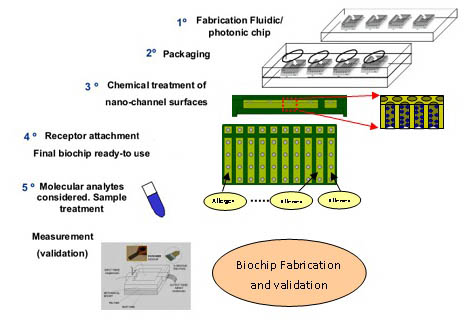POSITIVE – A porous silicon-based lab-on-a-chip for diagnosis of food allergies
Over 15 million people in Europe – including eight percent of all children - suffer from food allergies, and this number is growing steadily. Currently, children who portray mild symptoms may undergo a skin prick test that is not only lengthy but particularly painful and usually very traumatic. Researchers from the Positive consortium aim to change that, by putting a food allergy diagnosis machine on every pediatrician's desk, a machine that produces test results in 15 minutes from a miniscule drop of blood.
Project duration: 2010-2013
Today’s food allergy tests can be very expensive, take a long time, as well as being both difficult to administer and quite painful. This is especially true for the common skin prick test on young children whose arms are not large enough to take the regular test made on adults. Instead they have to be held face down for long periods of time while the pediatrician scratches food extracts into different marked patches on the skin of the child’s back. The Positive consortium is opening the door to a new scenario. Together with industrial partners, researchers from six universities and research institutes, and with a SEK 29 million grant from the EU, they are aiming to put a diagnostic platform, using a biosensor, on every pediatrician’s desk. This machine will be able to test for multiple food allergies very quickly, safely and painlessly from a tiny drop of blood.
By integrating and interfacing multiple core technologies and related materials from fluidics and photonics technology to porous silicon (porSi) and polymers, Positive will target the implementation of a microsystem tailored to a specific application with a key societal and economic need. The very high surface to volume ratio of porSi permits very high surface densities of bound antibody-antigen complexes in a reduced volume that through a novel optical interaction leads to scores of sensing areas on a 1cm2 chip with detection-limits of ~0.1 pg/mm2, beyond state of the art for highly integrated sensors.
This offers the further advantageous possibility of assaying several parameters simultaneously (multi-assay) leading to further increases in the reliability and reductions in the measurement uncertainty of a diagnostic over single-parameter assays. The novel Lab on a Chip technology has the potential to be fast and easy to use, making routine screening or monitoring of food allergies more cost-effective. The ultimate goal of Positive will be to demonstrate the feasibility of a rapid and low cost diagnostic test for food allergies at ‘point of care’ such as in a GP’s office. A yes/no answer to the presence of allergies from the identification of generated antibodies is expected within ~15 mins of adding a few microlitres of blood. A final prototype consisting of a packaged biochip will be used on clinical samples in order to detect important allergies such as that to milk, eggs, soya, tree nuts, fish, sesame and shrimp ingestion.

The inclusion of two industrial partners with their international market strategies and a clinical specialist for food allergies in children as an end-user will enable us to target the whole value chain from research to validation. It is therefore expected that these novel and beyond state of the art in-vitro sensors will give impetus to the global competitiveness and profitability of European industry in Microsystems activities.The inclusion of two industrial partners with their international market strategies and a clinical specialist for food allergies in children as an end-user will enable us to target the whole value chain from research to validation. It is therefore expected that these novel and beyond state of the art in-vitro sensors will give impetus to the global competitiveness and profitability of European industry in Microsystems activities.

Project homepage
Project sponsor
- EU FP7
Project partners
Charité - Universitätsmedizin Berlin, Germany
Consiglio Nazionale delle Ricerche, Italy
Universitat de València, Spain
Project members
Daniel Hill
Publications related to this project
- Real time optical immunosensing with flow-through porous alumina membranes
- A Real Time Immunoassay in Alumina Membranes
- Dry adhesive bonding of porous membranes to microstructured silicon wafers using the OSTE(+) dual-cure polymer
- Dry adhesive bonding of nanoporous inorganic membranes to microfluidic devices using the OSTE(+) dual-cure polymer
- Dry adhesive bonding of porous alumina membranes to microstructured silicon wafers using the OSTE(+) dual-cure polymer

